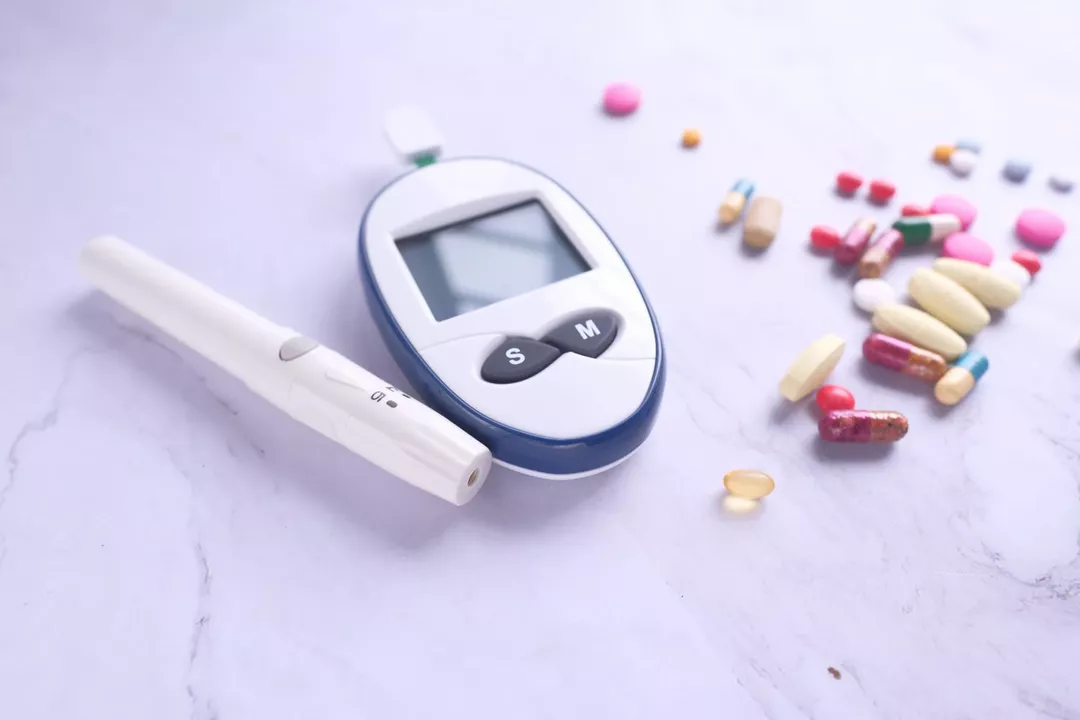
Understanding Atenolol and Its Uses
Atenolol is a beta-blocker medication primarily used to treat hypertension, angina, and other cardiovascular conditions. It works by blocking the action of certain natural substances in your body, such as adrenaline, which helps to slow down your heart rate and lower blood pressure. As a result, atenolol can help to prevent heart attacks, strokes, and kidney problems. However, if you have diabetes, there are some important aspects of atenolol that you should be aware of. In this article, we will discuss everything you need to know about atenolol and its potential effects on your diabetes management.
How Atenolol Can Affect Blood Sugar Levels
Atenolol, like other beta-blockers, can potentially affect your blood sugar levels. While it's not entirely clear how this happens, it's believed that beta-blockers may inhibit the release of insulin, which can lead to increased blood sugar levels. This is particularly important if you have diabetes, as maintaining proper blood sugar levels is crucial to managing your condition. Therefore, if you're taking atenolol, it's essential to monitor your blood sugar levels regularly and to inform your healthcare provider of any significant fluctuations.
Masking the Symptoms of Low Blood Sugar
Another important aspect to consider when taking atenolol and managing diabetes is that beta-blockers can sometimes mask the symptoms of low blood sugar (hypoglycemia). Typically, when your blood sugar levels drop too low, you may experience symptoms such as rapid heartbeat, trembling, sweating, and dizziness. However, since atenolol slows down your heart rate, you may not feel these warning signs, making it difficult to recognize and treat low blood sugar promptly. This can be dangerous, as untreated hypoglycemia can lead to severe complications, including unconsciousness and seizures.
Atenolol and Diabetic Complications
It's important to note that atenolol may not be the best choice for people with diabetes who also have certain complications, such as peripheral artery disease or kidney problems. In these cases, your healthcare provider may recommend alternative medications that are less likely to negatively impact your diabetes management. Always discuss your specific situation with your healthcare provider to determine the best course of action for managing your diabetes and any concurrent health conditions.
Monitoring Your Blood Sugar While on Atenolol
When taking atenolol, it's crucial to closely monitor your blood sugar levels. Make sure to check your blood sugar regularly, particularly when starting or adjusting your atenolol dosage. This will help you identify any changes in your blood sugar levels and allow your healthcare provider to make any necessary adjustments to your diabetes treatment plan. Remember to always communicate with your healthcare provider about your blood sugar levels and any concerns or questions you may have.
Managing Your Diabetes Alongside Atenolol Treatment
In addition to monitoring your blood sugar levels, it's essential to continue practicing healthy habits to manage your diabetes effectively. This includes maintaining a balanced diet, getting regular exercise, and taking any prescribed medications as directed. If you experience any difficulties managing your diabetes while on atenolol, don't hesitate to speak with your healthcare provider. They can help you adjust your treatment plan and offer guidance on how to maintain optimal blood sugar control.
Adjusting Your Diabetes Medications
If you find that atenolol is affecting your blood sugar levels, your healthcare provider may need to adjust your diabetes medications to help maintain proper blood sugar control. This may involve changing the dosage of your current medications or switching to different medications altogether. It's crucial to work closely with your healthcare provider to determine the best course of action and to ensure that your diabetes is well-managed while taking atenolol.
Alternatives to Atenolol for People with Diabetes
If you have diabetes and your healthcare provider determines that atenolol is not the best choice for you, there are alternative medications available. Other types of blood pressure medications, such as ACE inhibitors, calcium channel blockers, and angiotensin II receptor blockers, may be more suitable for people with diabetes. These medications have been shown to have fewer adverse effects on blood sugar levels and may even provide additional benefits for people with diabetes, such as kidney protection. Be sure to discuss your options with your healthcare provider to find the best treatment for your individual needs.
Conclusion
In conclusion, while atenolol can be an effective treatment for hypertension and other cardiovascular conditions, it's important for people with diabetes to be aware of its potential effects on blood sugar levels and hypoglycemia symptoms. By closely monitoring your blood sugar levels, maintaining healthy habits, and working with your healthcare provider to adjust your treatment plan as needed, you can successfully manage your diabetes while taking atenolol or other prescribed medications. Always communicate with your healthcare provider about any concerns or questions you may have to ensure the best possible outcomes for your health.







18 Comments